Mindfulness, what is it? You hear about mindfulness all the time these days, but how much is actually understood. Let’s start with the definition.
The Merriam-Webster dictionary says the definition of mindfulness is, “The practice of maintaining a nonjudgmental state of heightened or complete awareness of one’s thoughts, emotions, or experiences on a moment to moment basis.”
So, mindfulness seems to mean being completely aware of yourself and what is going on around you. That includes your emotions and thoughts.
According to Dr. Leah Weiss, “mindfulness has a lot of research-backed effects when it comes to wellbeing, to feeling really good, and when it comes to helping and serving those around you. Mindfulness: the intentional use of attention.”
Our Own Journey
We are all on a journey that continually changes, and this journey includes interacting with others, getting to know ourselves, and continuing to grow. We can learn to be aware of what we are doing and feeling, then select and return our attention to what we are doing right now. But in our world today, our attention is pulled in so many different directions, at times, that we become overwhelmed.
This is why we have to be in charge of our own self-coaching and train ourselves in the art of mindfulness. It can help to remind us what is important and what is not. It can help us face emotions and then know when it’s time to move on because we have learned to stop and listen to and believe in ourselves.
Observe your life as it happens instead of just going through the steps. Once we can turn our mindfulness on when we want or need to, that translates into the ability to better regulate our emotions.
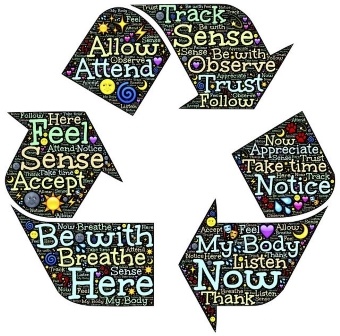
Why bother with learning mindfulness? Here are some good reasons.
Benefits of Mindfulness
*Less stress
*Improves sleep
*Helps with addictions (including food)
*Increased energy
*Better health
*Better self control
*Helps with depression
*Mental health clarity
*More able to focus
*More satisfaction in relationships
*Higher amount of self-insight and intuition
*Decreased fear
*Boosted memory
*Less emotional reactions
*Helps you slow down
*Helps to change bad habits
*Can lead to accepting yourself
All really good benefits to my way of thinking. Just the self-insight and focus got me going. I am easily distracted, but I can now recognize when that is happening and pull myself back.
I also noticed several months ago that I bite down on my teeth very hard when I’m stressed. (Could be why the dentist thinks I grind my teeth 😊). I’ve never realized this before. But since paying attention and being mindful several times a day, I’ve begun to notice when I do this with my teeth and can stop myself. One bad habit going down the drain!
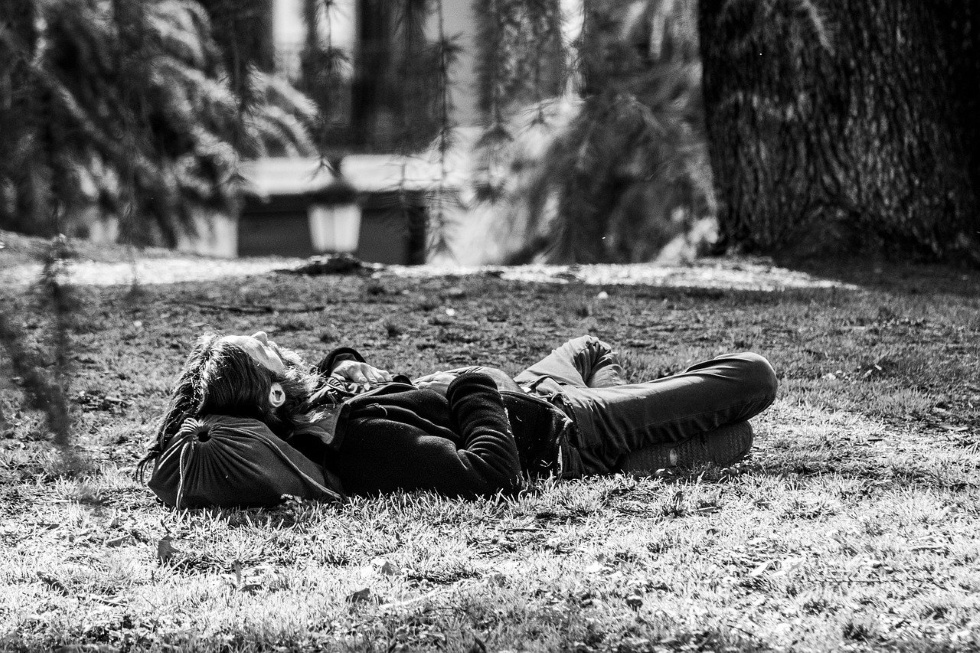
Things To Do To Become More Mindful.
1. Add these use mindful practices in your everyday life
Throughout your day, as you go through all of your activities, return your attention to your physical body to understand what’s going on. In reference to your body, ask yourself….
*How is my breathing?
*Am I feeling any type of sensations? (like grinding your teeth)
*What kind of tension am I starting to hold onto?
This helps you create a habit for knowing what’s happening with your body.
Next, Use Mindfulness to Access What You Are Feeling
When you’ve gotten used to the assessment of your body, start adding awareness of your emotions and feelings.
Train yourself to be aware of your emotions and feelings, so that you aren’t surprised one day with emotions you didn’t know you were feeling.
Training happens with repetition throughout your day. This will increase your ability to turn on your mindfulness (awareness), anytime you really want to focus on what is happening around you or how you are feeling. Questions to ask yourself about your feelings…..
*What am I feeling right now?
*Could I stressed or fearful
*Am I noticing my thoughts without necessarily believing them
*Am I accepting my current situation without judgment, including of myself
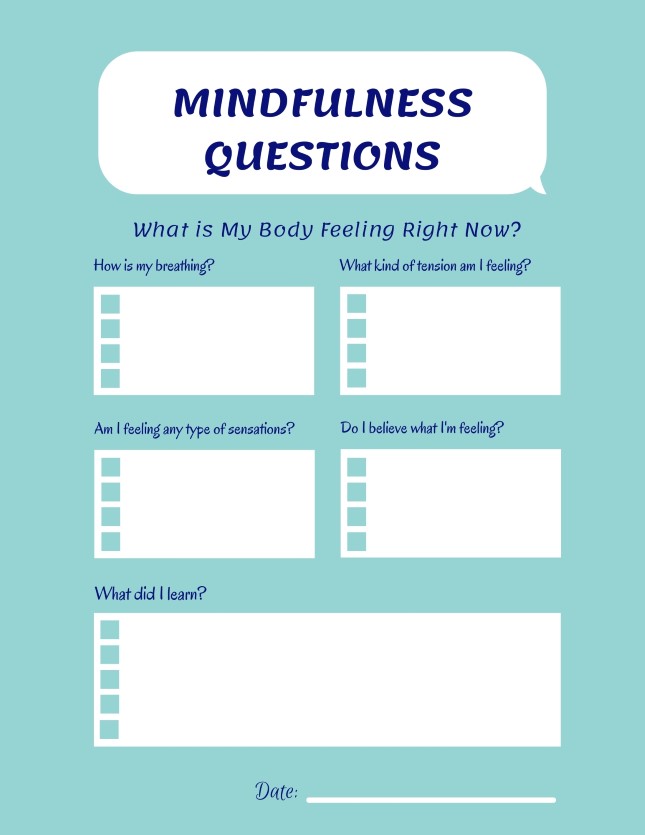
I’ve made a pair of worksheets for you to help on your mindfulness journey. One helps with how your body feels at any given time and the other is for your feelings. Just fill out the form and you’ll get them by email!!
2. Kick Up Your Curiosity
I love learning, so I’m always asking questions. I can’t seem to help myself, it’s not that I’m questioning what is being done, but rather has to do with my need to know why.
This plays into mindfulness. When you stop and notice enough about a situation and ask questions, you are certainly more aware of what is going on.
Turn mindfulness into concentrating on you and what type of questions you can ask to know more about yourself. For example: You are in a situation at work where you have been asked to do something you really don’t want to do. Instead of being irritated for being asked to do this current project, stop for a few minutes and ask the following:
*Why do I not want to do this?
*How am I feeling right now?
*What else is going on around me?
*Do I think I can’t do this job that I’ve just been asked to do.
*Noticing your thoughts without necessarily believing them
*Feel your feelings without letting them determine what you will do
*Accepting your current situation without judgment, including yourself
Spend a few minutes and ponder on these questions and see what answers you come up with.
This is being mindful of and for yourself. It doesn’t have to take long, but you do need to consistently stop yourself several times a day. Do this type of exercise to get your mind set to automatically start thinking in a mindful way, in any situation, that would be helpful to you. This helps you get back in touch with the wonder of you.
When you get good at this, then start looking at other things with the same curiosity. Your garden or your pet that really does love you or how you truly enjoy the company of your best friend. Ask yourself why you love your garden or why you are surprised at your dog’s adoration. And why do you like spending time with your best friend? Are you grateful for these things or are you feeling something else at the moment?
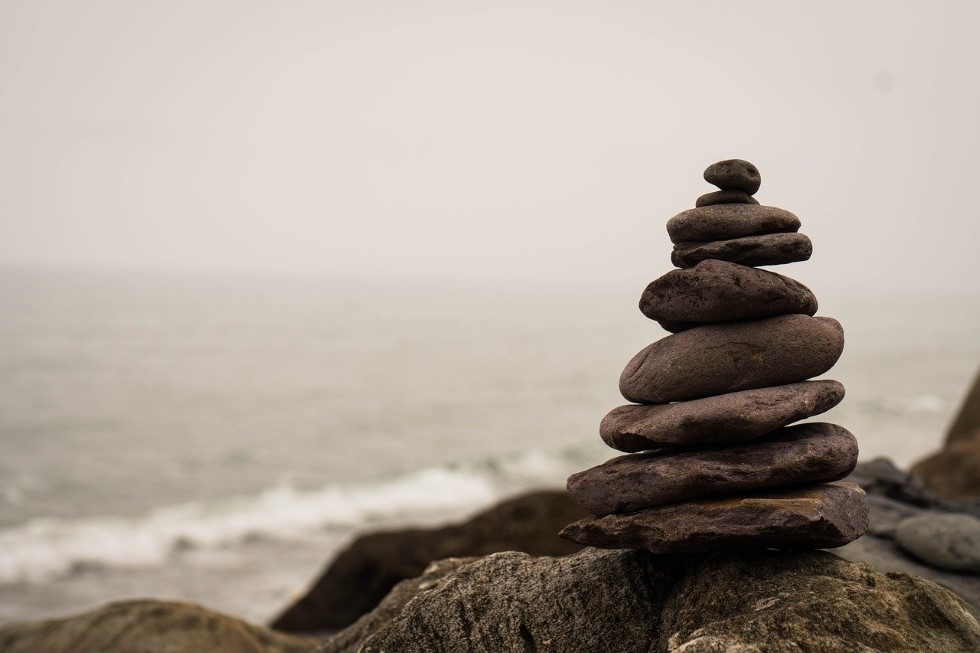
Don’t Go Off The Deep End
Notice other things in each of these situations besides just the one thing that you first notice. That’s what mindfulness is. Stopping, noticing things, people, animals, nature, etc. around you and asking questions or just being grateful for these things and that you are noticing them.
As I said earlier, we are all on a journey of all kinds of situations and obstacles. By becoming more mindful, we start learning. We learn that we may not have been angry at the new project given to you at work for the reason you thought. Noticing and knowing helps you work through the situation much faster. Feel your feelings without letting them determine what you will do.
This keeps you from going off the deep end and saying or doing something you will regret later. And that is better for you. When you know, you figure things out faster, cool yourself down faster, then are more able to act, if necessary. And that results in a lot less stress for you and those around you.
3. Forgiveness
We also need to learn that we need to forgive ourselves. A lot of us can forgive others for all kinds of things, but we can’t seem to forgive ourselves. Why is that. Do you remember this? “Forgive us our trespasses as we forgive those who trespass against us.” It doesn’t say we should forgive everyone, except ourselves.
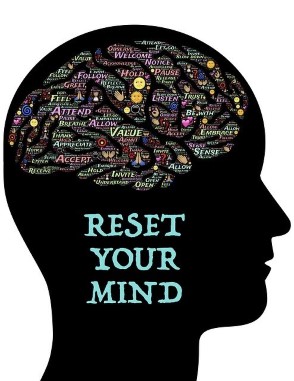
We’ve all done things we are ashamed of or know we shouldn’t have done. Acknowledge it, ask and figure out why, truly forgive yourself and then move on.
Besides, remember, mistakes are proof you are trying. These situations are times to learn. When you are practicing mindfulness, you realize you have been given an opportunity to figure out what has gotten in your way and then how you can move on the fastest. Remember those questions from earlier?
Again—
Practicing mindfulness teaches us to stop, notice, figure out why, forgive others or ourselves and then move forward much faster with a lesson learned. Much less stress. Using this type of mindfulness in your life, can be an incredible tool to grow in your journey.
4. We Are All Imperfect
Each and every one of us are imperfect, that’s the way we were made, as humans. Hopefully, on your journey to become mindful, you will come to realize that your imperfections are OK and stop bullying yourself. So many of us talk to ourselves like we would never let someone else talk to us.
Become mindful of when you are doing this to yourself. When you realize what you are doing, stop immediately and ask yourself why. Go through the questions again, determine why your self-talk is so accusatory at the moment. Don’t use old habits or convenience to determine how to handle current situations. Use your new skill of mindfulness, then forgive yourself and move on. End of the bullying.
5. Realize That Nothing Stays The Same Forever
Once you have become more mindful, you will begin to realize and notice things all around you. This leads to realizing that everything is in constant change and will begin to change your mindset. You may want to start spending more time on things and with those that are more important to you, instead of something like, say social media.
Remember the saying “It all goes by so fast,” especially when we are thinking of our kids. The same goes for everything, so savor those moments given when you realize how precious they are.
CONCLUSION
You may be wondering where to start on your journey to become more mindful. I’ll say to you; “Right where you are, right now”.
Stay Awesome!
Cher
Relevant Read:
Meditating For Beginners
How To Destress
Keep Positive Thinking Flowing
If you enjoyed my post, pin it and share it—it would be a wonderful compliment!!
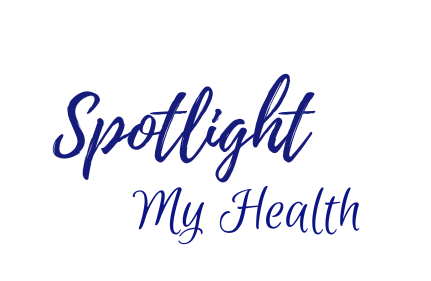
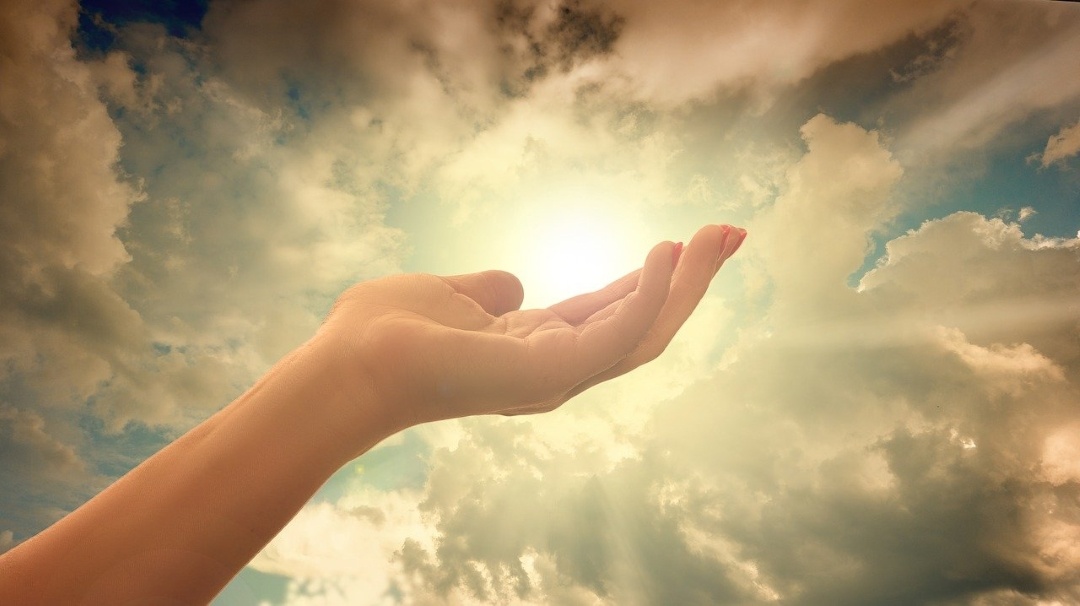







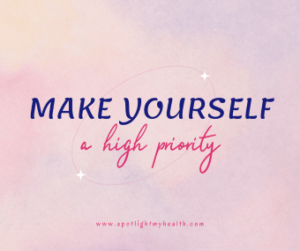

I really enjoyed this post. I think we all need to embrace this information for a happy and interesting life. Thank you Cher!
Hey Kate:
I agree with you 100%!
Take Care,
Cher